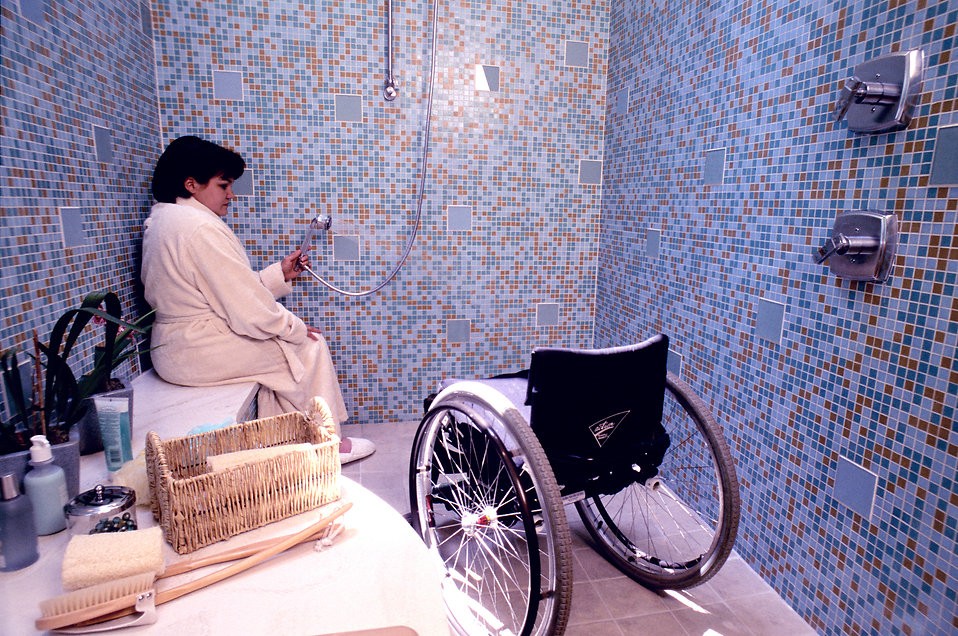Human rights law has been protecting the right to health in the UK for 40 years. This was strengthened in the year 2000 with the passing of the Human Rights Act. Here are some of the cases which have seen important steps forward in how our right to health is protected.
-
Hospital patients must be the first priority

There are several important cases where victims of ill-treatment in hospitals have been able to rely on their human rights for protection.
In one case, elderly and vulnerable patients were badly mistreated in an NHS hospital. A public inquiry was conducted and found there was a failure of the NHS system at every level. Public inquiries are held when there is public concern that particular events may have occurred. The inquiry made 290 recommendations based on the ‘appalling standard of care’ that had been operating at the hospital including that:
Patients must be the first priority in all of what the NHS does by ensuring that, within available resources, they …are protected from avoidable harm and any deprivation of their basic rights.
The inquiry held that patients who had suffered were entitled to protection and compensation.
This case is important because it demonstrates that every hospital is legally bound by fundamental human rights principles including dignity, respect, transparency and accountability.
-
The state must protect suicidal patients

The state (including hospitals and prisons) must protect those who are at risk of suicide. Before Melanie Rabone committed suicide at the age of 24, there was no clear legal obligation on hospitals to take positive steps to protect those at risk of taking their own lives. When Melanie was released from a psychiatric hospital, she was known to be a ‘high risk.’ The court found that the hospital had failed to fulfil a fundamental duty to protect her right to life.
This case is important because it established that hospitals have a duty of care to protect the lives of patients they know to be at risk of taking their own lives, a fundamental principle of the right to health.
Safeguards for people admitted to hospital because of behavioural difficulties was the focus of another key case from 2004 in which the UK was found to be failing in its duty to patients in the care of the state. In this case, H.L. was a man who suffered from autism and severe learning difficulties. He was, effectively, held as a prisoner in a hospital because he had no right to challenge his ‘detention.’ In the UK, the highest court said this was not against the law. The case had to be brought to the European Court of Human Rights before this ‘gap’ in the law for vulnerable patients was identified. The UK changed its law so that people in HL’s position can now challenge their detention in hospital.
-
Companies must protect the right to health too

What if health care services are being provided by a private company, as they increasingly are? Do private companies have a duty to protect the right to health? It took the case of YL, an elderly woman suffering from Alzheimer’s disease, to challenge the private care home she was living in, to change the law.
Southern Cross Limited wanted to evict YL from its care home. YL argued that this was a breach of her right to a family life. She lost her case because the court said that the private company did not have a legal duty to protect her human rights – because it was a private company. Because of this case, the government changed the law to make sure that private companies providing public health care have a duty to protect human rights – and the right to health.
-
The Police must investigate rape allegations

The police must investigate allegations of rape and serious sexual assault. This means that women who have been, or are at serious risk of being, sexually assaulted can go to the police and know their right to health will be protected by human rights law.
This principle was only clearly established in 2015 in the case known as the ‘black cab rapist.’ Two women, who had been seriously sexually assaulted by a taxi driver, argued that the police had failed in their duty to protect them from inhuman and degrading treatment, because they had failed to investigate the case properly. The taxi driver had been raping and assaulting passengers for six years and the police had failed to stop him. The women won their case.
This case is important because human rights law created, for the first time, a duty on the police to protect victims and potential victims of serious sexual assault in this way. This law went further than the English ‘common’ law and therefore emphasised the importance of human rights law in protecting our rights and freedoms.
-
Disabled people’s physical and psychological integrity is protected

In this case from 2002, Mrs Bernard had suffered a stroke and was severely disabled. The council housed Mrs Bernard’s family, including her husband and six children, in accommodation that was totally inadequate for her needs. The court found that the council had breached her right to a home and family life. The judge said:
Private life, in the Court’s view, includes a person’s physical and psychological integrity; the guarantee afforded by Article 8 of the Convention is primarily intended to ensure the development, without outside interference, of the personality of each individual in his relations with other human beings.
This case is important because it demonstrates that the law protects everybody’s right to physical and psychological integrity, which is a fundamental principle of the right to health.






